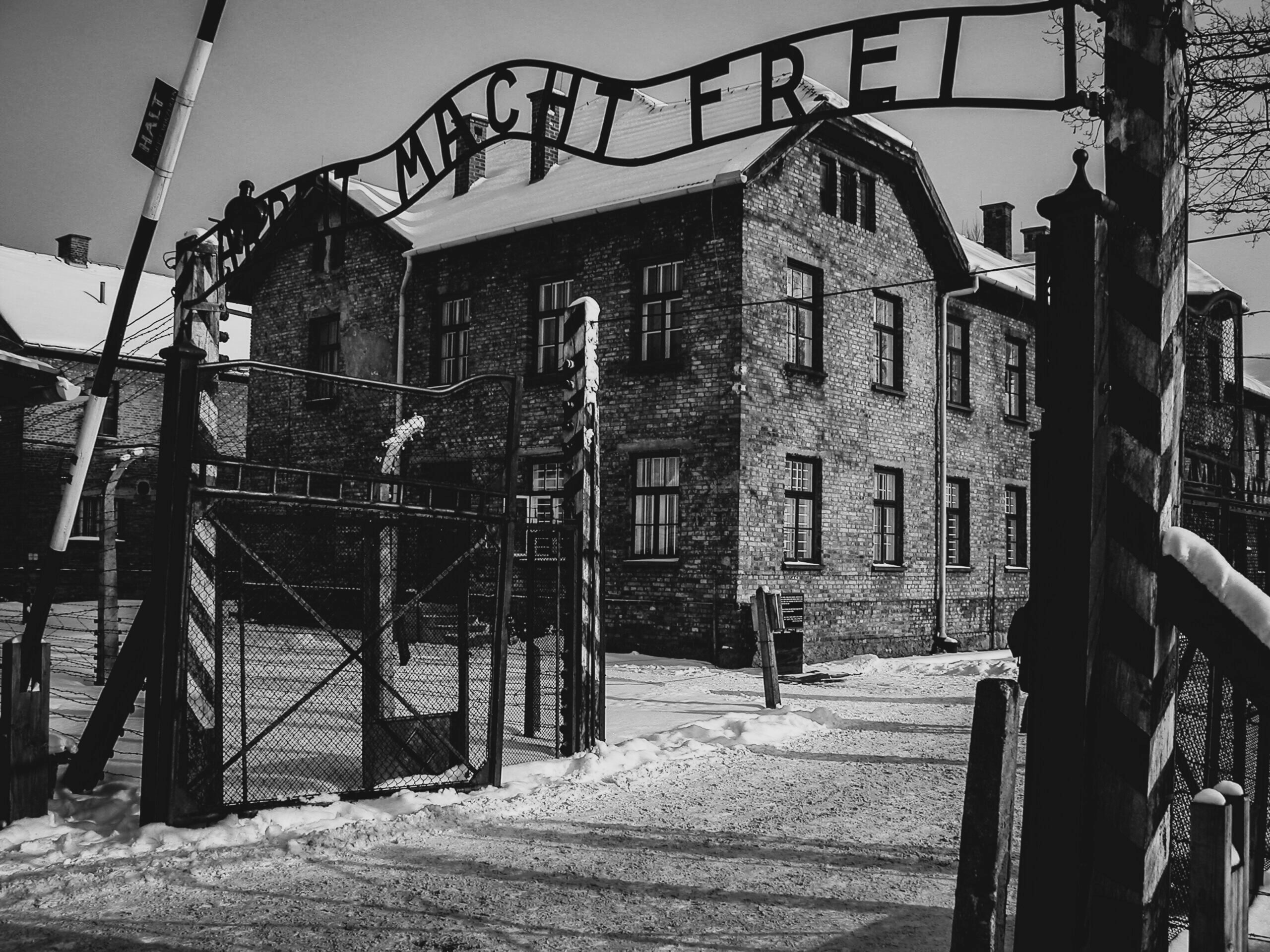
What Remains
Discarded on the train tracks,
a crushed bag of potato chips,
bright red label glaring.
Two bus drivers linger
by their idling vehicles—
one bends to his lighter,
the wreath of smoke
drifting briefly,
a fragile echo of clouds above,
shredded like tissue
against a gunmetal sky.
Forgotten on a paint-chipped bench:
Fodor’s Guide to the Best of Poland,
now sodden, sagging in the rain,
a drowned corpse of pages.
The ground churns with brown bubbles,
muddy, restless.
A few strands of grass lie flat,
trampled and broken—
discarded straws of life.
Something brushes my arm.
I turn.
But no one is there.
Only a sign,
words in every language,
pleading:
Appropriate solemnity.
Respect.
The gate looms ahead.
Its iron words—
Arbeit Macht Frei—
blur my vision,
clench my throat.
I cannot breathe.
A phantom weight presses down,
a crushing foot on my chest.
The bus driver’s smoke
invades my lungs,
filling me with ashes—
acrid, relentless.
Ashes, ashes.
We all fall down.
I am in Auschwitz.
I am in hell.
To see is to be caged.
Above, high in the sky,
a sparrow circles—
round and round,
over and over and over.
A Hole in Her Head
A hole in her head—
that’s how my grandmother described it
when she still knew how to explain.
She clasped her thinning gray hair,
her fingers trembling,
as if holding tight
could stop the slow
leakage of herself.
Two months later,
she is lost in her own bedroom,
wandering in circles,
searching for a shopping cart
in a market we cannot name—
maybe the one across the street,
maybe Dresden,
thousands of miles,
thousands of days ago.
A week passes,
and she hides her wallet,
the car keys, the passport,
convinced she will be taken.
When the policeman arrives
after her frantic call,
no one can persuade her
that the man by the wedding photograph—
is not a Nazi from her youth,
waiting to throw her into the oven.
At the hospital,
she is erased.
Her eyes, glazed like stale candy,
her cheeks, raw and red
as if scrubbed too hard
by a coarse cloth.
The hole in her head grows—a crater now.
Words flee her,
German, English, Yiddish,
all exorcised.
Her fingers curl into fists,
pounding her chest,
fighting off the black wings
of oblivion.
I expect her hair to fall out,
to reveal the emptiness beneath,
yet it grows.
Thick, tangled,
snagging the nurse’s comb,
catching in her own fingers.
Her face, smoothed by Lithium,
a cruel imitation of youth.
But her eyes, dim and unreachable,
betray the truth:
she is a stranger now.
I lean close, searching for a fragment
of the woman who once held me.
But the void stares back.
And the hole in her head—
the one she warned me about—
has swallowed her whole.